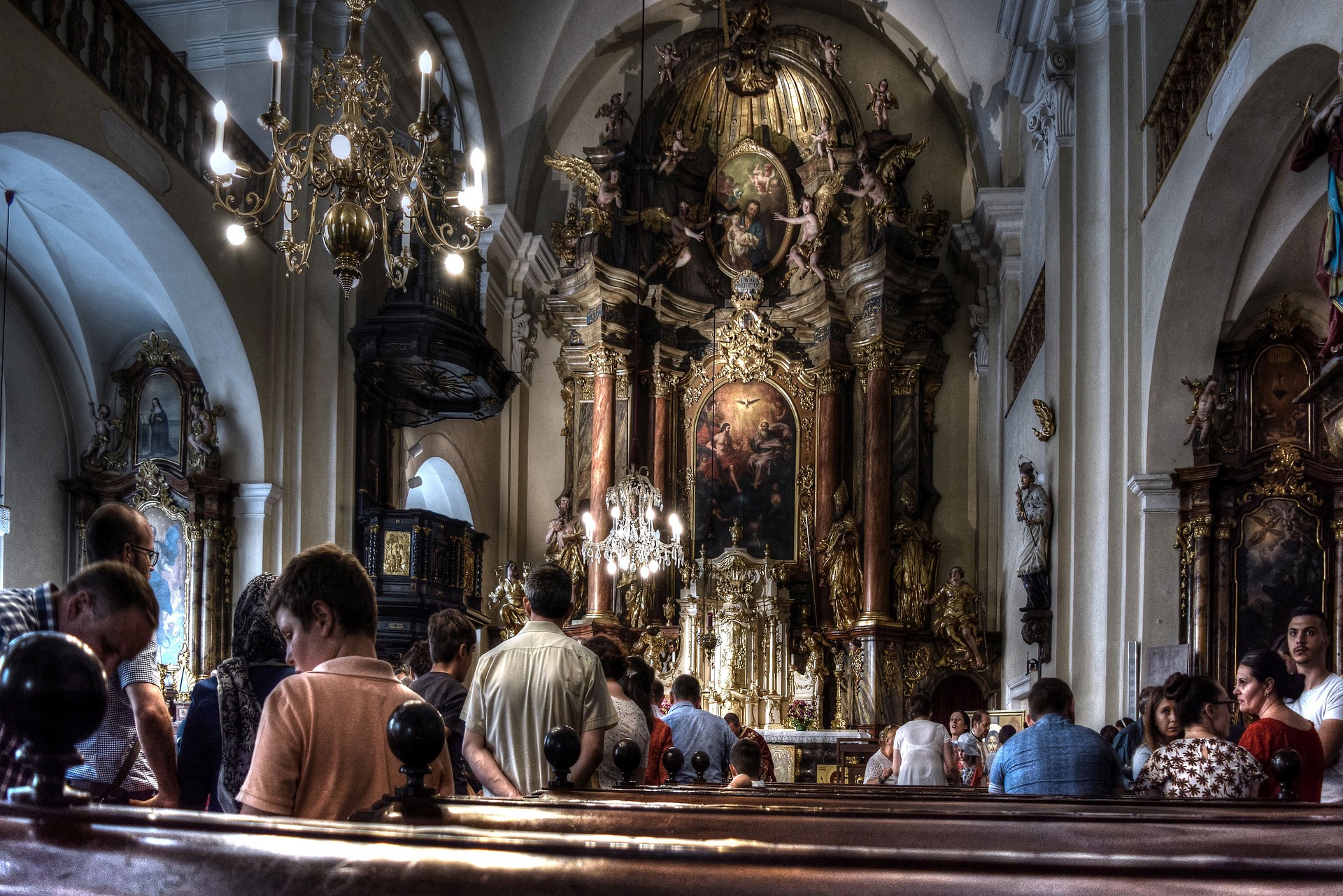Q: Saint Pope John Paul II several times spoke about a “new evangelization.” What did he mean by that term? When is this supposed to begin? It seems that the Church has already tried small groups, but they went nowhere. When will we hear Jesus’ Good News from the pulpit? Why do we have to go to Protestant rallies to get fed from God’s word? Many have left the Catholic Church because of shallow preaching. The Catholic Church could turn this country around.
A: The Catholic Church exists for one reason only: to spread the Good News of Jesus Christ. It has been doing that since the first Easter Sunday. In response to the Protestant Reformation, the Catholic Church began in 1568 two commissions that in 1622 evolved into the Congregation for the Propagation of the Faith (renamed in 1967 the Congregation for the Evangelization of Peoples). The Church has used every new form of communications as it arose (for example, radio, TV, Web and now social media).
Fewer than eight months after his election as pope, Blessed John Paul II visited the Shrine of the Holy Cross in Mogila, Poland (near Krakow). On June 9, 1979, he spoke there of a “new evangelization” of Poland in its second millennium.
He was probably aware that the Latin American bishops’ meeting in Medellin, Colombia, in 1968 had used this term. The 1974 world synod of bishops was dedicated to “the evangelization of the modern world” and led to Pope Paul VI’s 1975 apostolic exhortation on announcing the Good News.
In later homilies and other writings, Pope John Paul II applied that expression to the Church’s mission in the entire world, calling in 1983 for an evangelization that was “new in its ardor, its methods and its expression” (Port-au-Prince, Haiti). The “new evangelization” was an important reason for—and a lasting result of—the Great Jubilee of the Year 2000 as the Church entered the third millennium since the birth of Jesus.
On September 21, 2010, Pope Benedict XVI issued an apostolic letter establishing the Pontifical Council for Promoting the New Evangelization. On October 12, 2010, he named Archbishop Rino Fisichella as its first president. Last January, the pope appointed 19 council members, including Cardinal William Levada, who was archbishop of San Francisco before becoming prefect of the Congregation for the Doctrine of the Faith, and Archbishop Timothy Dolan of New York.
The council’s work is directed especially to regions where the Catholic Church has existed for a long time and is now experiencing secularization. The office’s task is especially to explore how modern forms of communication can be valid instruments of evangelization while using theCatechism of the Catholic Church as an effective teaching tool for handing on the faith.
The pope has chosen “The new evangelization for the transmission of the Christian faith” as the theme for the next world synod of bishops (October 7-28, 2012). The preliminary questionnaire was sent to the world’s bishops and others last March.
For centuries, Catholics have been sharing their faith in family, parish, school and university settings. Those efforts are always hindered by the countersign given through the sins of the Church’s members. Small faith communities have helped the Church to carry out its mission. New strategies may aid in this task.
I’m sorry that you have not found Catholic preaching very inspiring. Some preachers are more effective than others—and sometimes we are more open to hearing certain things. All Christian preaching is about Jesus, his Good News and the obstacles that may hinder our deeper conversion to that Good News.
What or who can turn the United States around? I think it is more accurate to say that this will come from Catholics who understand and live their faith—while cooperating with all those who share the fundamental values of our democratic form of government. By word and deed, this is the task of all baptized Christians.
Many people did not consider Jesus a success when he died. But then he rose. That’s the heart of evangelizing.








